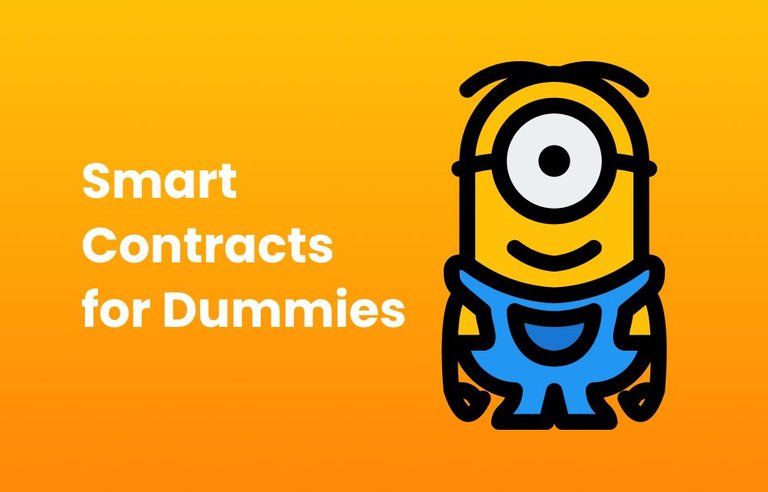
I am going to try to make it as basic as possible because I believe that I am not the only one that has had issues with certain crypto terms.
Say you want to make a transaction with someone and you need terms agreed upon, the first thing you try to do is draw terms out, right? If it is a big deal or involves a huge sum, you bring in a lawyer to make everything foolproof and whatnot (not like they are so great at that foolproof bit all the time).
Now imagine a situation where the terms have already been created for you and automatically, and all you have to do is initiate the transaction relying on the fact that the terms leave your end secured. According to the lawyer/cryptographer Nick Sazbo who came up with the idea, a smart contract is to be "a set of promises, specified in digital form, including protocols within which the parties perform on these promises”. In technical terms, it is basically a computer code that runs on a blockchain when the right parameters are met.
As expected, smart contracts are basically run when the set conditions are met. Basic logic is the primary driving force of smart contracts. If or when A is satisfied, B will happen. They typically are used to execute an agreement for multiple partners at once replacing physical intermediaries. This comes in handy for cryptocurrencies and has the potential to be useful in areas that require a lot of record-keeping. It is also interesting to know how secure smart contracts can be. For a smart contract, once the parameter is met and the transaction is executed, the blockchain is updated and such transactions can not be changed, also only those who are granted permission can see the results.
Smart contracts have a wide range of benefits even up to the medical sector; according to IBM, “Sonoco and IBM are working to reduce issues in the transport of life-saving medications by increasing supply chain transparency. Powered by IBM Blockchain Transparent Supply, Pharma Portal is a blockchain-based platform that tracks temperature-controlled pharmaceuticals through the supply chain to provide trusted, reliable and accurate data across multiple parties”.
Although a smart contract sounds very similar to a smart legal contract, they are not the same thing. First off, the latter is not necessarily found on a blockchain. A smart legal contract is a legally binding document that has been made to run digitally. Smart contracts typically are used to automate the execution of an agreement so that all participants can be immediately certain of the outcome, without an intermediary’s involvement or time loss. They can also automate a workflow, triggering the next action when conditions are met (According to IBM)